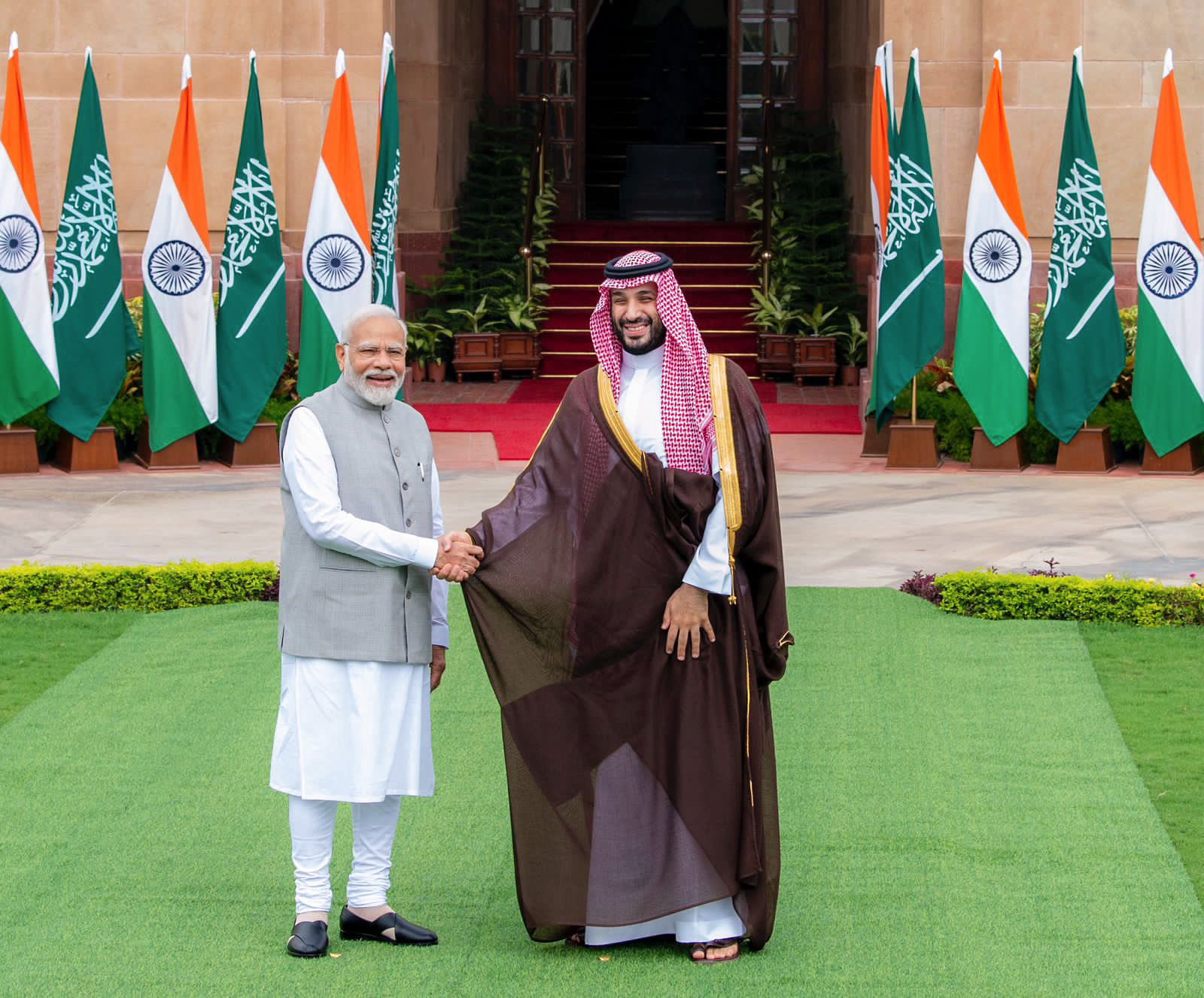Prime Minister Narendra Modi’s state visit to Saudi Arabia has given a strong push to bilateral ties, with significant strides in defence, energy, trade, and cultural cooperation. As part of the visit, India and Saudi Arabia expanded the Strategic Partnership Council by adding two new ministerial committees—on defence cooperation and on tourism and culture—signifying a maturing and multidimensional relationship.
This marked PM Modi’s third visit to the Kingdom, undertaken at the invitation of Crown Prince and Prime Minister Mohammed bin Salman. However, the visit was cut short following the terror attack in Pahalgam, Jammu and Kashmir. Despite this, the two leaders co-chaired the second meeting of the Strategic Partnership Council and reviewed the progress of bilateral cooperation across various sectors.
The Council now includes four ministerial committees, reflecting the growing depth of engagement. Both leaders agreed to convene the next council meeting at a mutually convenient time.
India and Saudi Arabia welcomed the steady growth in bilateral trade. India is now Saudi Arabia’s second-largest trading partner, while Saudi Arabia ranks as India’s fifth-largest. Both countries agreed to expedite negotiations on the India-GCC Free Trade Agreement and fast-track the Bilateral Investment Treaty. Several Memorandums of Understanding (MoUs) were also signed, covering areas such as healthcare, postal services, space cooperation, and anti-doping.
In line with their respective national goals—Vision 2030 for Saudi Arabia and Viksit Bharat 2047 for India—the two sides reaffirmed their commitment to working together for shared prosperity.
Defence emerged as a key area of collaboration, with the launch of a dedicated ministerial committee. The leaders highlighted the success of recent joint military exercises such as SADA TANSEEQ and AL MOHED AL HINDI, and welcomed the initiation of tri-service staff-level talks. The two nations also pledged to strengthen defence industrial partnerships.
They jointly condemned terrorism in all its forms, including the April 22 Pahalgam attack, and rejected any link between terrorism and religion, race, or culture. The leaders called for dismantling terrorism infrastructure globally and bringing perpetrators to justice.
The two nations agreed to deepen cooperation in conventional and clean energy sectors, including oil, renewables, and green hydrogen. A joint study on an electricity interconnection project is currently underway. They also plan to collaborate on crude oil supply, refining, grid security, and energy efficiency.
Both sides reiterated their commitment to climate action under the Paris Agreement, focusing on reducing emissions. India appreciated Saudi Arabia’s initiatives such as the Saudi Green Initiative and the Middle East Green Initiative.
PM Modi praised the Saudi government for ensuring the welfare of the 2.7 million Indian nationals living in the Kingdom, calling it a testament to strong people-to-people ties. Cultural and academic collaboration was another key highlight, with a renewed focus on literature, film, heritage, sports, and higher education. Saudi Arabia welcomed Indian universities’ presence and committed to expanding media and tourism cooperation.
The two countries reaffirmed their joint commitment to the India-Middle East-Europe Economic Corridor, envisioned during the Crown Prince’s visit to India in 2023. They also agreed to strengthen coordination in multilateral forums including the G20, IMF, and World Bank, especially on economic and regional security challenges.
Meanwhile, the existing MoU between the Saudi Food and Drug Authority and India’s Central Drugs Standard Control Organization was extended for another five years, further cementing ties in the health sector.
(With IANS inputs)




















